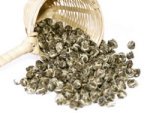Solving problems every tea drinker faces.
Exclusive subscriber benefits:
Receive four FREE quality ebooks worth $60
-
Save at least $5 during your first purchase
If you suffer from or are prone to developing kidney stones, you may have a dilemma whether to drink tea.
Kidney stones are mineral deposits made up of calcium, uric acid or the amino acid cysteine. At least three quarters of kidney stones are composed of calcium combined with phosphate or oxalic acid.
Tea is a concern because it is rich in oxalic acid and you could drink tea with milk, which contains calcium.
(To put it in perspective, there are other foods rich in oxalic acids, such as beet greens, chocolate, rhubarb, spinach, and sorrel If you do eat these foods, avoid paring them with another food high in calcium, such as spinach and cheese or chocolate and milk!)
However, a 2002 study conducted in New Zealand found that unlike black tea, green tea contains only a tiny amount of oxalate. In addition, you are much less likely to drink green tea with milk, meaning calcium is less likely to bind to the tea!
To quote from the study:
The mean soluble oxalate contents of black tea in tea bags and loose tea leaves were 4.68 and 5.11 mg/g tea, respectively, while green teas and oolong tea had lower oxalate contents, ranging from 0.23 to 1.15 mg/g tea.
Existing scientific evidence also suggests that not only green tea is unlikely to cause kidney stone, it could even reduce the risk of getting kidney stone.
A 1998 American study published in the April edition of the Annals of Internal Medicine found that drinking tea reduces kidney stones risk in women.

Researchers examined 81,093 woman nurses who were 40 to 86 years of age in 1986 with no history of kidney stones. They found that the risk of stone formation reduced by 8% for each 240 millimeters cup of tea consumed each day.
Green tea contains catechins. They act as powerful antioxidants, wiping out free radicals that can form urinary stones.
A 2005 study conducted by Nagoya City University Graduate School of Medical Sciences found that laboratory rats drinking green tea were less likely to develop stones in the urinary tract.
This study was confirmed by a separate 2006 study conducted by Seoul National University. In both green tea and kidney stones studies, the scientists believed that green tea antioxidants inhibit the formation of urinary stones.
References
Charrier MJ1, Savage GP, Vanhanen L (2002). Oxalate content and calcium binding capacity of tea and herbal teas. Asia Pac J Clin Nutr. 2002;11(4):298-301.
New! Comments: Like This Story? Leave A Comment!
Back to Top of Green Tea and Kidney Stones
Back to Green Tea Benefits Main Page
Back to Tea Health Benefits Main Page
Back to Amazing Green Tea Home
Solving problems every tea drinker faces.
Exclusive subscriber benefits:
Receive four FREE quality ebooks worth $60
Save at least $5 during your first purchase
Copyright� 2006-2025 Amazing-Green-Tea.com. All rights reserved.

